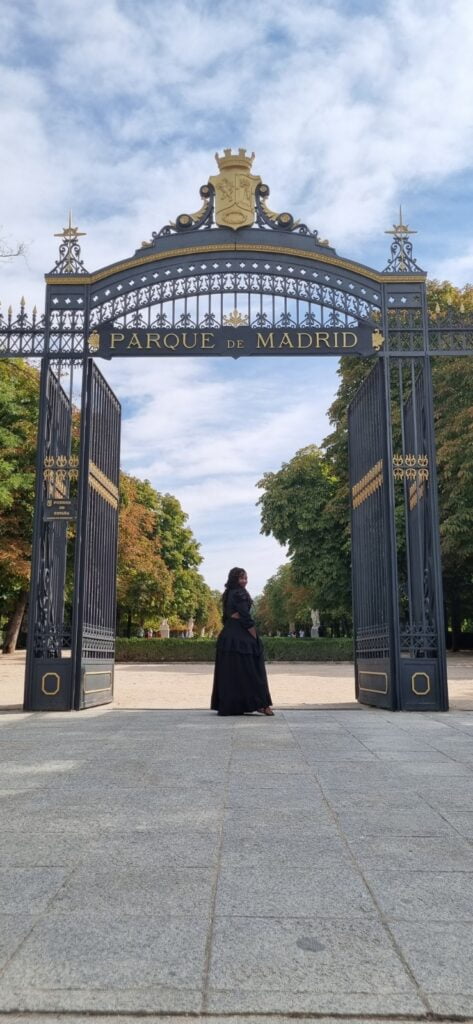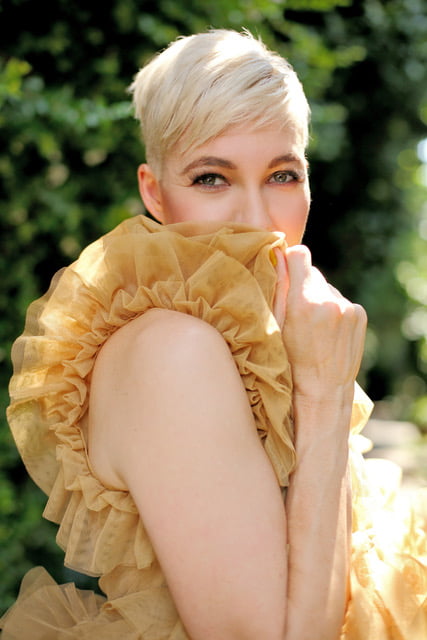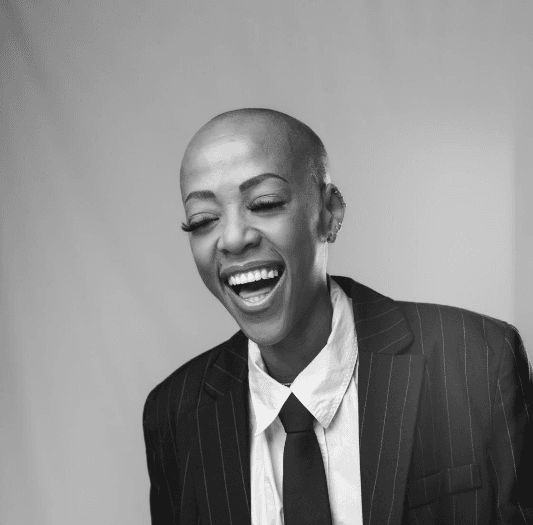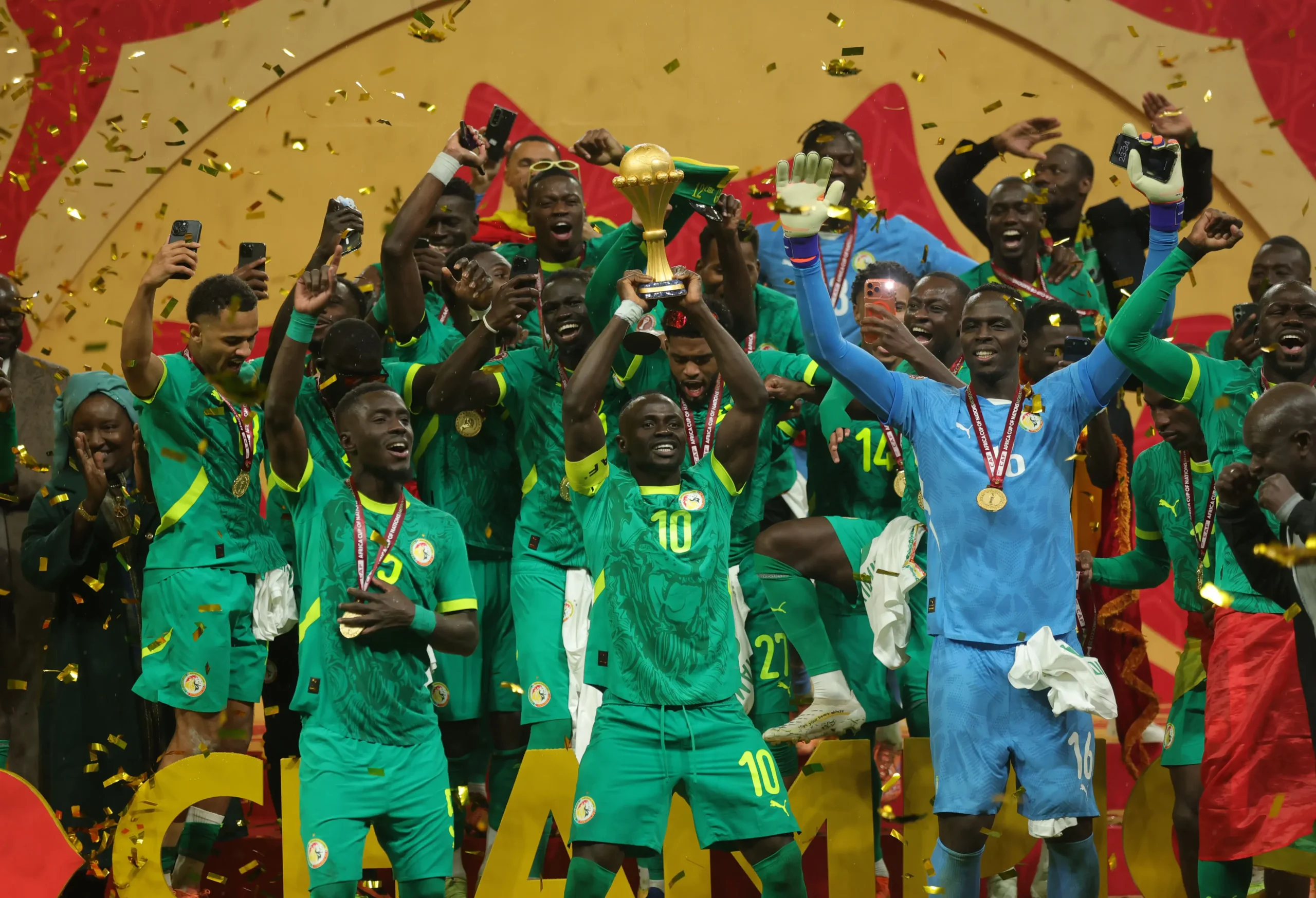Chwayitisa Futshane describes herself as a woman who is always looking for an adventure.
Born and raised in the Eastern Cape by the best parents that God would have ever given her, she recalls them as people who have always displayed love and affection through their actions and their immense sacrifices for their children.
“I love being around people because I am motivated and inspired by those who don’t set any limits for themselves. People who are courageous in their willingness to fail at everything, if only to be able to say that they gave it their everything.
Futshane, is an all rounder who sees herself as a morning person, an afternoon person and an evening person She adds that she loves Fridays as much as she loves Mondays.
September 11 2001 is the day she set her sights on journalism and never looked back.
“I will never forget it. I had come home from school and I was getting ready for netball practice. My parents, as most of our parents, always watched the news – from Morning Live before school to uNoxolo Grootboom in the evenings – so I was in the habit of consuming news. Back then, we also had a dish, so I’d often come home after school and switch the channel to CNN. On this particular day, when I switched to CNN, I watched a plane fly into a building and hundreds of people covered in blood and dust, looking dazed on the streets of New York. Since that day, journalism was all I ever wanted to do,” said Futshane.
The media extraordinaire, upon studying journalism, believed that her path would lead her to a life in front of the camera.
“I was made to report live from some war-torn country somewhere in the world, or at least that’s what I envisioned. Strangely, I have never actually practised journalism in front of a camera and it’s not a prospect that excites me now either.”
“I dislike short-form news – 90 seconds is surely not enough to tell compelling stories. It’s a highlight at best and what I really love doing is telling stories to their fullest. What I know for sure is that I love producing unscripted, long-form television. I love telling people-centred stories and the work I do now, allows me to help shape those stories – albeit not in the way I ever expected,” said the Managing Editor to South Africa’s popular investigative journalism show Carteblanche.
Doubling up as a Supervising Producer, she admits that journalism is a difficult craft, particularly for women because where men are often given respect and positions for merely existing, women have to fight really hard for a seat at the same table.
“We work in an industry dominated by men, where you will be overlooked and undermined, no matter how much work and effort you put in. Then when you finally have the position, someone will inevitably attempt to take you down a peg – you’ll be told that you’re arrogant, too big for shoes and even your emails will offend because someone, some won’t “appreciate your tone”. Every trope that we speak about as black women, is the lived experience,” said Futshane.

However, she remains firm of the belief that investigative journalism is one of the most important tenets of a democratic society.
“It is noble work to seek truth, accountability and justice for those who are without and the responsibility that we have to inform, to interrogate and to investigate, cannot be underplayed. Some of this country’s darkest secrets have been uncovered by courageous journalists, who have put their careers and sometimes their lives on the line, in the quest for truth. This is what I carry with me because justice and equality is the bare minimum that we all deserve,” said Futshane.
Having studied Journalism and Media studies at Rhodes University in Makhanda, formerly Grahamstown, she cites that she was raised by educators so for her it goes without saying that education is paramount.
“During my coursework, I did a number of courses including law and politics and I think that it was a really strong foundation for the work that I would later do. Critically studying journalism included a course in media ethics and law and it’s still one of my favourite courses to date because it applies on a practical level, every single day, on every single story,” said Futshane.

We asked Chwayitisa Futshane some questions to get to know her better:
- What does a typical day in your life look like?
I often tell people that my job entails me watching a lot of television because a large portion of my day is taken up by viewing and reviewing inserts, scripting, and planning. In-between, we have a lot of meetings about content and if you can find a few minutes, you might eventually get to responding to emails and actually getting on with your daily deliverables.
- What are your other interests, apart from media? How do your personal interests feed into the person you are?
The adage ‘health is wealth”, is my mantra. I am now at that age where I pay more attention to being healthy and fulfilled in all aspects of my life and I’ve become more deliberate about where and how I spend my personal time. My favourite things to do are long drives out of Gauteng. That change in environment is so good for your wellbeing and planned spontaneity – it’s an oxymoron at face value – but it is the key to a happy life.
- How different are the various media houses and broadcast mediums you’ve worked with, what are some of the things you’ve picked up in the industry?
I’ve worked on both radio and television, and radio has such a different energy to television. I’ve heard it called the theatre of the mind and I don’t think there is anything more difficult than keeping your audience engaged, using just your voice as the instrument. It’s a skill that not many of us can master, and certainly not everyone’s voice is made for radio.
- What’s one thing you would do differently in your journey thus far?
There’s a lot I would do differently but I think you fix what you can and accept what you can’t. I don’t dwell too long on what’s behind me.
- What are three things you wish you knew earlier in your career?
It’s important to be multi-skilled in the media. The world is changing and you need to evolve and adapt quickly in your career.
That some of the best radio and television presenters are as good as they are, because of the producers and researchers who do the work behind the scenes.
You should always know the answers to every question you’re going to ask.
- What message of hope would you give to your younger self and those to come after you?
Your life is your own canvas and every day, you get a fresh chance to paint your masterpiece. Most days, it won’t look like anyone else’s.






ลวดสลิง
… [Trackback]
[…] Find More Information here on that Topic: nounouche.online/i-have-earned-my-title-carteblaches-chwayitisa-futshane/ […]
สมัครเน็ต ais
… [Trackback]
[…] Find More on that Topic: nounouche.online/i-have-earned-my-title-carteblaches-chwayitisa-futshane/ […]
ruay
… [Trackback]
[…] Information to that Topic: nounouche.online/i-have-earned-my-title-carteblaches-chwayitisa-futshane/ […]
เรือคายัค
… [Trackback]
[…] Read More on that Topic: nounouche.online/i-have-earned-my-title-carteblaches-chwayitisa-futshane/ […]
Spadegaming Demo ทดลองเล่นสล็อตฟรีไม่เสียเงิน
… [Trackback]
[…] Here you will find 52739 additional Info on that Topic: nounouche.online/i-have-earned-my-title-carteblaches-chwayitisa-futshane/ […]
dultogel 777
… [Trackback]
[…] Find More to that Topic: nounouche.online/i-have-earned-my-title-carteblaches-chwayitisa-futshane/ […]
สล็อต Gem Saviour
… [Trackback]
[…] Find More Info here to that Topic: nounouche.online/i-have-earned-my-title-carteblaches-chwayitisa-futshane/ […]
โคมไฟ
… [Trackback]
[…] Find More on that Topic: nounouche.online/i-have-earned-my-title-carteblaches-chwayitisa-futshane/ […]
รับจำนำรถใกล้ฉัน
… [Trackback]
[…] Find More here to that Topic: nounouche.online/i-have-earned-my-title-carteblaches-chwayitisa-futshane/ […]
ทางเข้าpg
… [Trackback]
[…] Information to that Topic: nounouche.online/i-have-earned-my-title-carteblaches-chwayitisa-futshane/ […]
ทัวร์เวียดนาม
… [Trackback]
[…] Read More on to that Topic: nounouche.online/i-have-earned-my-title-carteblaches-chwayitisa-futshane/ […]
คลินิกเสริมความงาม
… [Trackback]
[…] Info on that Topic: nounouche.online/i-have-earned-my-title-carteblaches-chwayitisa-futshane/ […]
rich89bet
… [Trackback]
[…] Read More here on that Topic: nounouche.online/i-have-earned-my-title-carteblaches-chwayitisa-futshane/ […]
couples massage
… [Trackback]
[…] Find More to that Topic: nounouche.online/i-have-earned-my-title-carteblaches-chwayitisa-futshane/ […]
massage Bangkok
… [Trackback]
[…] Info on that Topic: nounouche.online/i-have-earned-my-title-carteblaches-chwayitisa-futshane/ […]
ฟรีสปินสล็อต
… [Trackback]
[…] Find More to that Topic: nounouche.online/i-have-earned-my-title-carteblaches-chwayitisa-futshane/ […]
เป่าฟูหลิง
… [Trackback]
[…] Here you will find 85374 more Info on that Topic: nounouche.online/i-have-earned-my-title-carteblaches-chwayitisa-futshane/ […]
mostbet
… [Trackback]
[…] Read More Info here on that Topic: nounouche.online/i-have-earned-my-title-carteblaches-chwayitisa-futshane/ […]
push888
… [Trackback]
[…] Read More on on that Topic: nounouche.online/i-have-earned-my-title-carteblaches-chwayitisa-futshane/ […]
web
… [Trackback]
[…] Read More Info here on that Topic: nounouche.online/i-have-earned-my-title-carteblaches-chwayitisa-futshane/ […]
Wild Coaster
… [Trackback]
[…] Info on that Topic: nounouche.online/i-have-earned-my-title-carteblaches-chwayitisa-futshane/ […]
ค่ายดังรวมอยู่ที่ Funny18
… [Trackback]
[…] Find More here on that Topic: nounouche.online/i-have-earned-my-title-carteblaches-chwayitisa-futshane/ […]
เว็บพนันออนไลน์เว็บตรง
… [Trackback]
[…] Find More Info here on that Topic: nounouche.online/i-have-earned-my-title-carteblaches-chwayitisa-futshane/ […]
essentials fear of god
… [Trackback]
[…] Find More on that Topic: nounouche.online/i-have-earned-my-title-carteblaches-chwayitisa-futshane/ […]
ตรวจสอบสลิปโอนเงิน
… [Trackback]
[…] Read More on to that Topic: nounouche.online/i-have-earned-my-title-carteblaches-chwayitisa-futshane/ […]
จำหน่าย พัดลมอุตสาหกรรม
… [Trackback]
[…] Info to that Topic: nounouche.online/i-have-earned-my-title-carteblaches-chwayitisa-futshane/ […]
lefkosa escort bayan
… [Trackback]
[…] Find More on to that Topic: nounouche.online/i-have-earned-my-title-carteblaches-chwayitisa-futshane/ […]
تحميل 1xBet ios
… [Trackback]
[…] There you will find 99263 additional Info to that Topic: nounouche.online/i-have-earned-my-title-carteblaches-chwayitisa-futshane/ […]
แอพเช็คสลิปโอนเงิน
… [Trackback]
[…] Read More Info here to that Topic: nounouche.online/i-have-earned-my-title-carteblaches-chwayitisa-futshane/ […]
th39
… [Trackback]
[…] There you will find 36701 more Information on that Topic: nounouche.online/i-have-earned-my-title-carteblaches-chwayitisa-futshane/ […]
123bet login
… [Trackback]
[…] Read More Information here to that Topic: nounouche.online/i-have-earned-my-title-carteblaches-chwayitisa-futshane/ […]
จัดหาแม่บ้าน
… [Trackback]
[…] Find More to that Topic: nounouche.online/i-have-earned-my-title-carteblaches-chwayitisa-futshane/ […]
พรมปูพื้นรถยนต์
… [Trackback]
[…] Info to that Topic: nounouche.online/i-have-earned-my-title-carteblaches-chwayitisa-futshane/ […]
เว็บเต็งหวย คืออะไร
… [Trackback]
[…] Read More to that Topic: nounouche.online/i-have-earned-my-title-carteblaches-chwayitisa-futshane/ […]
ole777
… [Trackback]
[…] Here you will find 78004 more Information to that Topic: nounouche.online/i-have-earned-my-title-carteblaches-chwayitisa-futshane/ […]
https://katonkaragay.kz/user/ma
… [Trackback]
[…] Info to that Topic: nounouche.online/i-have-earned-my-title-carteblaches-chwayitisa-futshane/ […]
เว็บพนันออนไลน์เกาหลี
… [Trackback]
[…] Find More on that Topic: nounouche.online/i-have-earned-my-title-carteblaches-chwayitisa-futshane/ […]